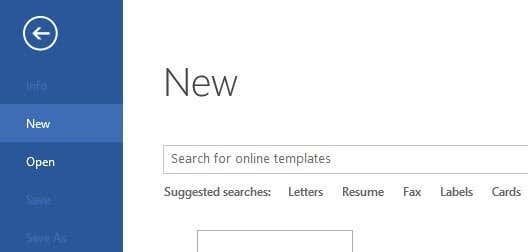
- How to find template on word for labels how to#
- How to find template on word for labels full#
- How to find template on word for labels code#
- How to find template on word for labels free#
You may retain the “Product Code” and “Barcode” columns. You may edit your Excel file to make it merge-ready. You can copy them into your Excel file once they’re made.ġ.
How to find template on word for labels code#
K.If your Excel program was created before 2013, online barcode generators can help you make QR code images for your data. Do steps 3e to 3i for the rest of your labels. Resize the image and transfer it to the second column of your database. This will create an image in the middle of the page. Click “Insert” in the QR4Office dialog box. Lower levels will make fewer repetitions and may likewise reduce scanning efficiency. This can make the QR code too crowded and harder to read. Higher levels will yield more repetitions of the encoded text inside the image. Once you’ve generated your QR code on the right-side panel, you can change its color and that of its background. You can copy the complete product description under “Custom” or enter its URL.į. You can put in a URL, email address, phone number, pre-programmed text message (SMS), geographic location, or any custom text. You will be asked to enter the text you want to encode.

After that, the QR4Office dialog box will automatically appear on the right side of the screen. QR4Officewill be installed in your system.
How to find template on word for labels free#
When the Microsoft Office Store appears, search “QR4Office.” This is a free add-in, but you need to log in to your Microsoft account to get it. On the top menu, click “Insert” and “Get Add-ins.”ĭ. Assign the second column under the heading “QR Code.”Ĭ.
How to find template on word for labels full#
The first column may be given the title “Product Description.” If you’re selling your product online, you may type its URL here instead of the full description.ī. Width of the cells between the labels: 0.12” (0.3 cm)Ī.Width of the cells within the labels: 0.85″ (2.2 cm).Page margins: 0.20” (0.5 cm) on all sides.Our 30-per-sheet address labels typically require the following settings: At EnKo Products, we offer barcode labels of different sizes. Different suppliers will have different numbers for the above parameters. From here, you will have an idea of what values to give when customizing the page margins, row height, and column width.ĭ.

Measure the margins and dimensions of your sheet labels and compare them with the ruler guides. Click “View” then “Page Layout.” This should make the ruler guides appear while letting you view the final page layout.Ĭ. This is the part that is also called the “ribbon.” A window will appear with options about what to do with this panel. Right-click any gray portion of the top menu. Code 128 characters do not need these asterisks.Ī.

The asterisks mark the start and stop signs for barcode scanners. SKU codes using Code 39 must have an asterisk before and after the main character string. Otherwise, you will have to generate sequential product codes manuallyį.
How to find template on word for labels how to#
We gave guidelines for making these character strings in our blog, SKU and UPC: What’s the Difference, and Why Does it Matter? You may use Excel formulas to automate product code generation if you know how to maneuver them. Fill out the first column with your SKU codes. You can find them on the top panel under “Cells.”Į. To make the database presentable and easy to understand, you may use features like autofit, center text, wrap text, etc. In our example, we entitled the third column “Product Description.”ĭ. The third column will have the same human-readable font of your choice as it will display details about your product. In the example, we used “Barcode” as the column title and Code 128 as the barcoding languageĬ. Give a human-readable title to this column. Format the second column to show text in the barcoding font you prefer. In this example, we used “Product Code.”ī. Format the first column to show text in the non-barcoding font you want to use.


 0 kommentar(er)
0 kommentar(er)
